Find Help
More Items From Ergsy search
-
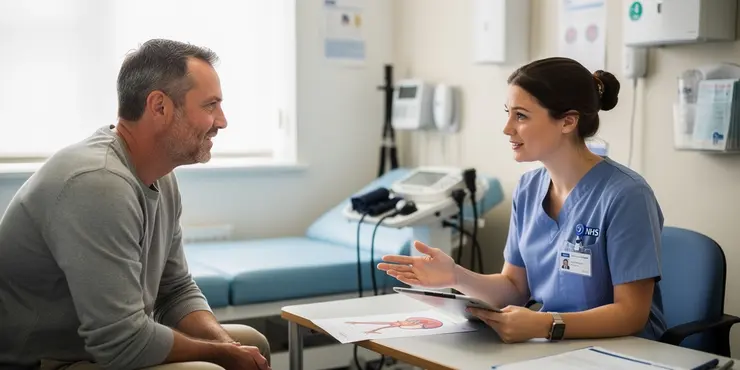
AAA (Abdominal aortic aneurysm) screening
Relevance: 100%
-
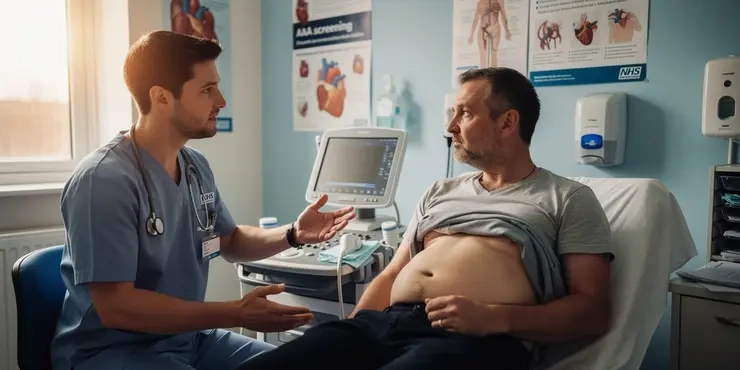
NHS Abdominal Aortic Aneurysm (AAA) Screening
Relevance: 96%
-
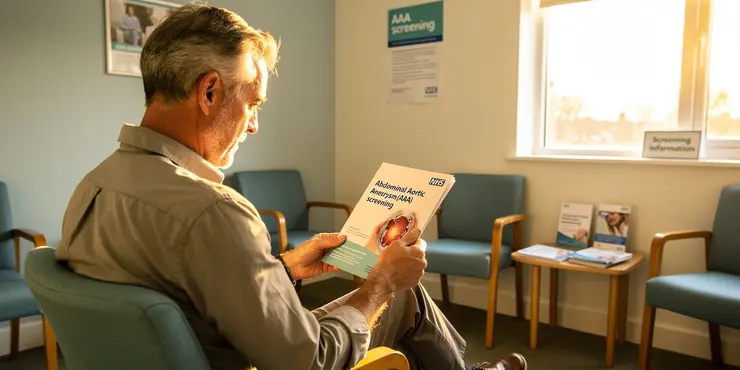
Abdominal Aortic Aneurysm (AAA) screening programme
Relevance: 94%
-
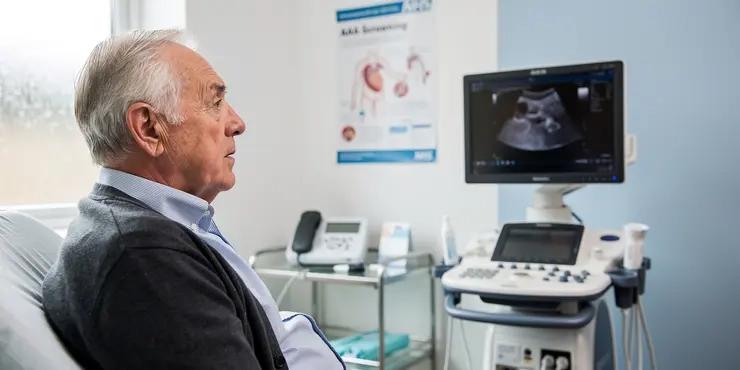
Eddie's Story - Abdominal Aortic Aneurysm (AAA) Screening
Relevance: 94%
-
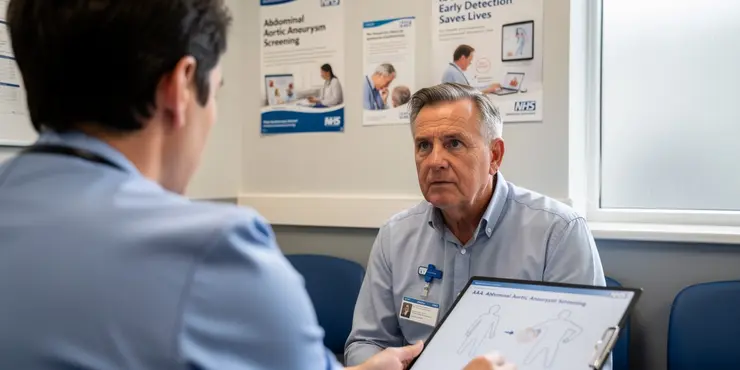
Your abdominal aortic aneurysm (AAA) screening appointment
Relevance: 91%
-
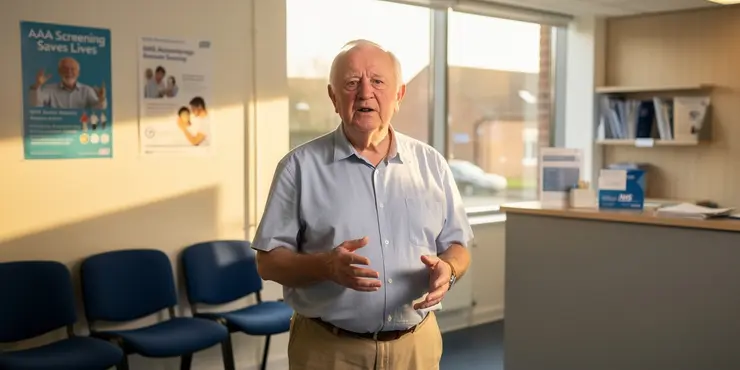
Survivor of an Abdominal Aortic Aneurysm rupture appeals for men to take up NHS Screening Programme.
Relevance: 84%
-
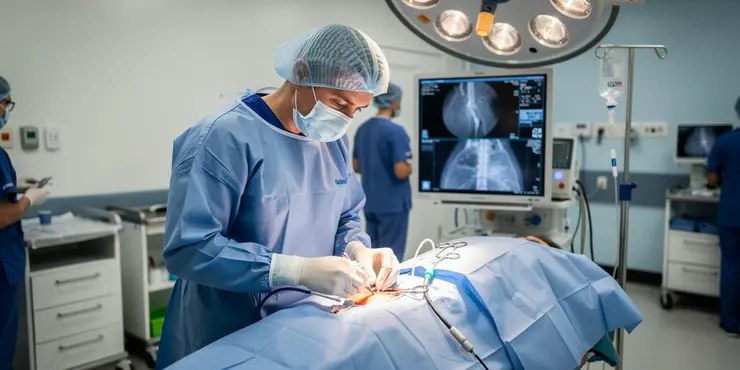
Repairing complex aortic aneurysm
Relevance: 72%
-
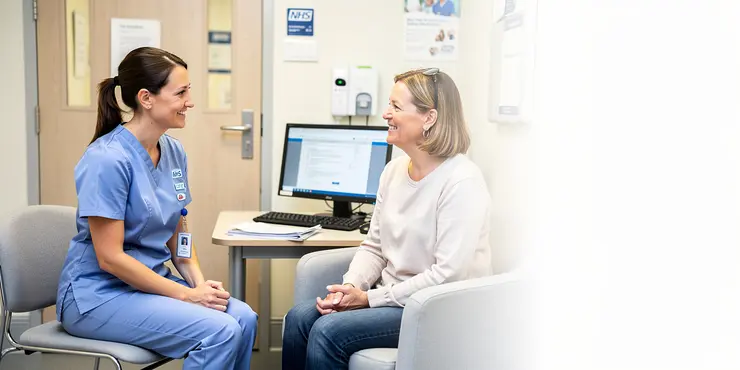
Health Screenings You Should Know About
Relevance: 30%
-
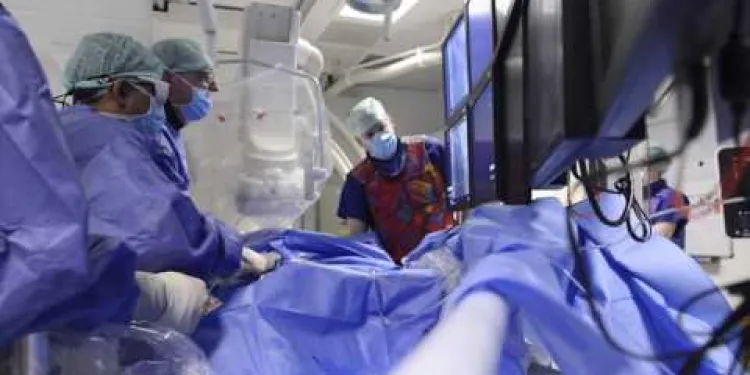
What is it like having a Transcutaneous Aortic Valve Implant (TAVI)?
Relevance: 27%
-

Stomach ache and abdominal pain
Relevance: 26%
-
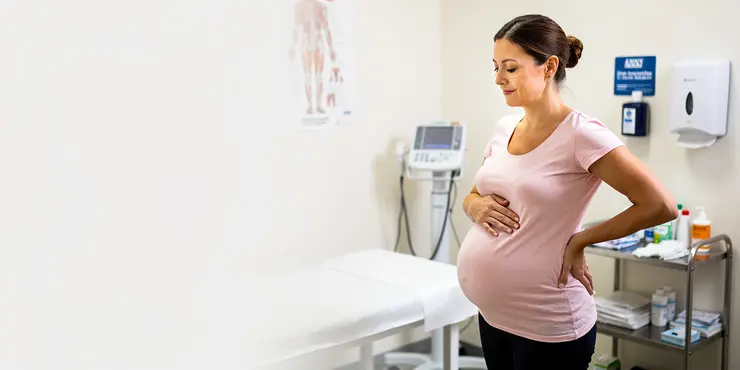
Can I do abdominal exercises during pregnancy?
Relevance: 26%
-
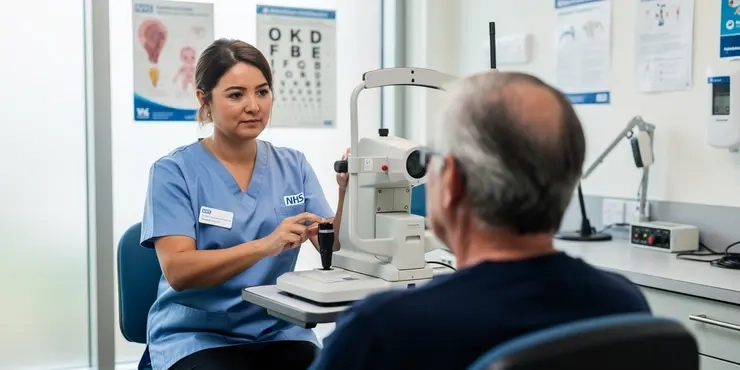
Derbyshire Diabetic Eye Screening - Diabetic Eye Screening
Relevance: 20%
-
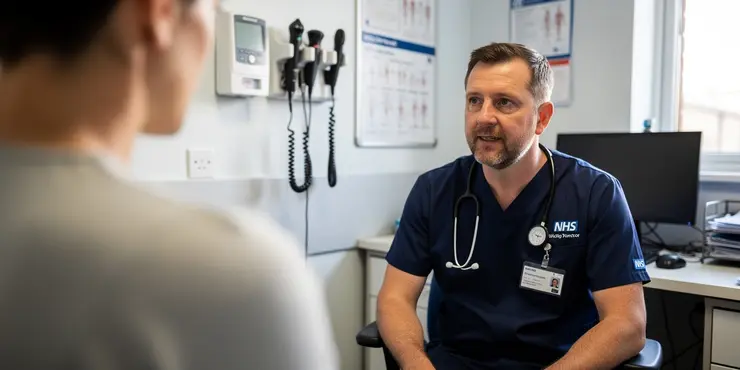
How is appendicitis different from other causes of abdominal pain?
Relevance: 20%
-
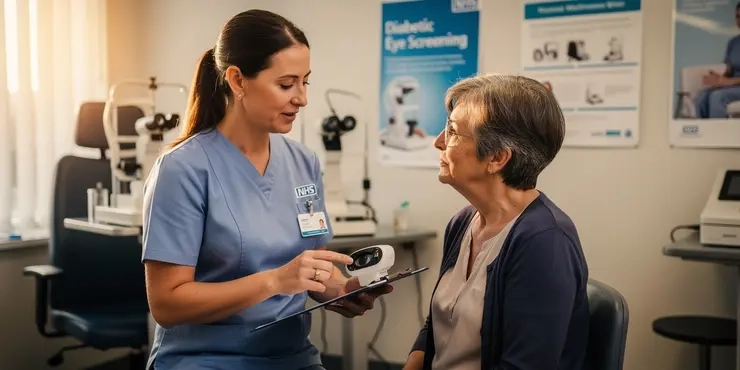
Derbyshire Diabetic Eye Screening - Your Screening Appointment
Relevance: 20%
-
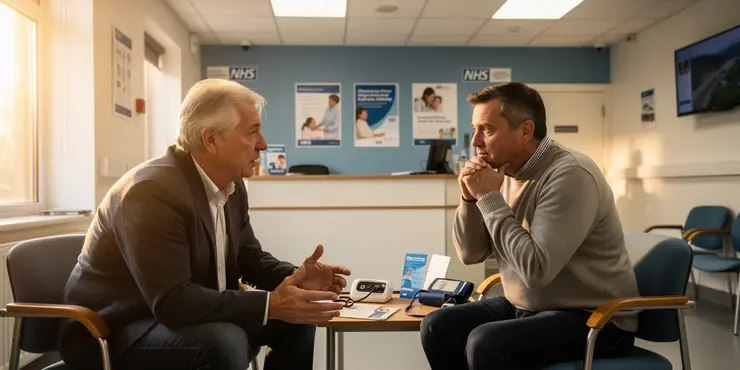
Bowel cancer screening: Alan Titchmarsh and Tommy Walsh | NHS
Relevance: 19%
-
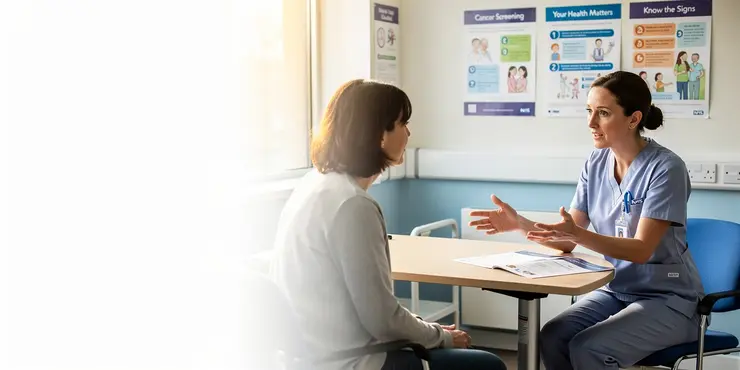
What is cancer screening?
Relevance: 19%
-
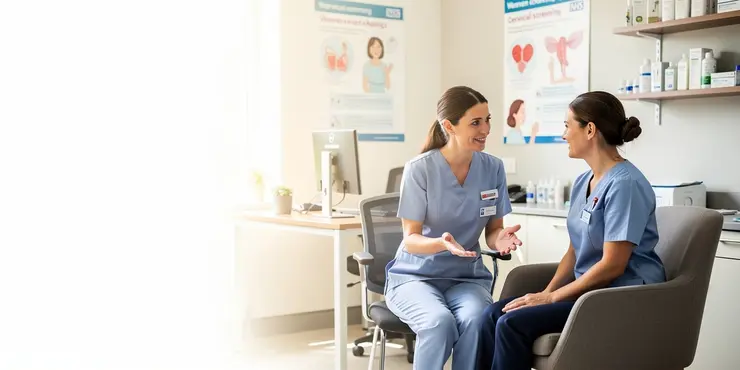
Cervical screening: Q&A | NHS
Relevance: 19%
-
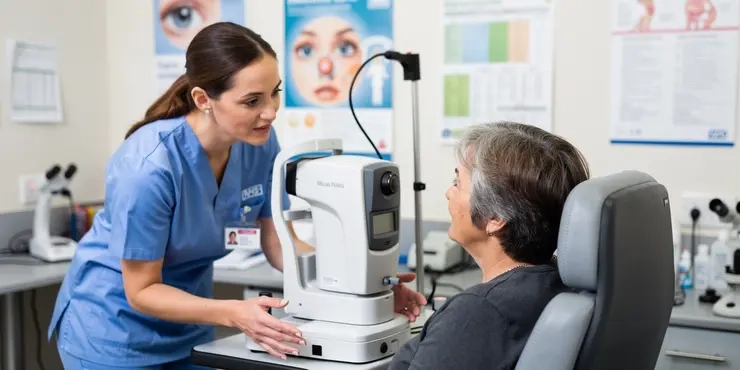
Diabetes Eye Screening
Relevance: 19%
-
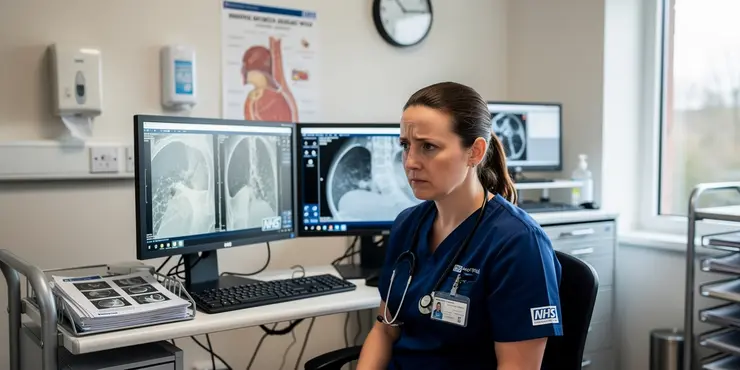
AI Breast Cancer Screening in the UK
Relevance: 19%
-
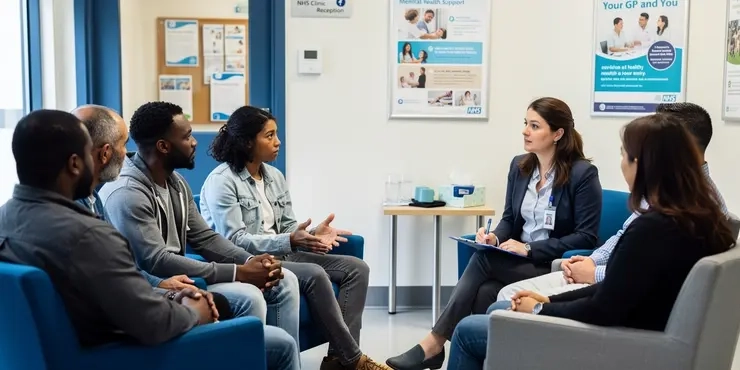
The asylum screening interview
Relevance: 19%
-
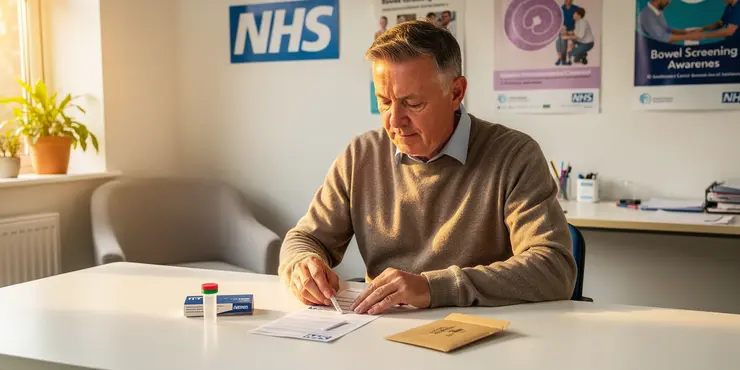
What are the recommendations for colorectal cancer screening?
Relevance: 19%
-
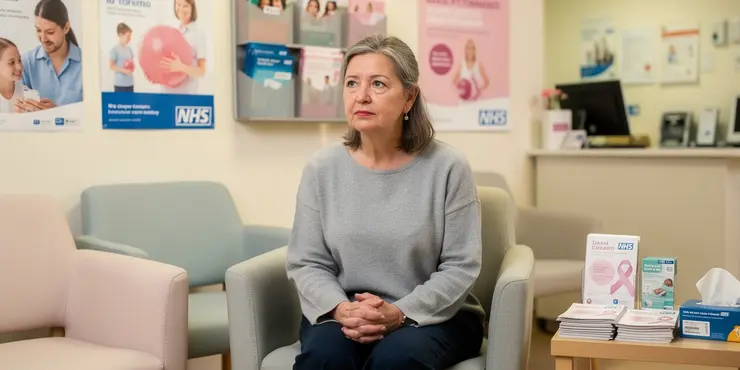
NHS breast cancer screening
Relevance: 18%
-

Are there eco-friendly mosquito screen options?
Relevance: 18%
-
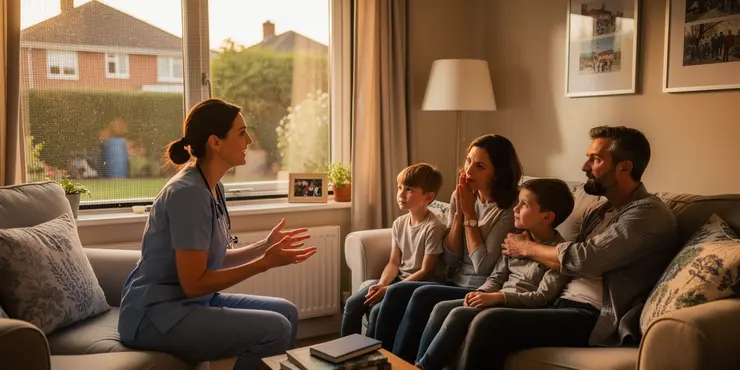
Are mosquito window screens effective in the UK?
Relevance: 18%
-
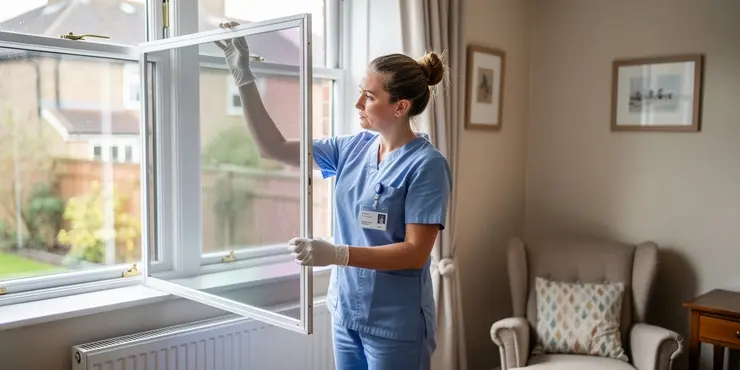
Are Mosquito window screens effective?
Relevance: 18%
-

Are there retractable mosquito screens available?
Relevance: 18%
-
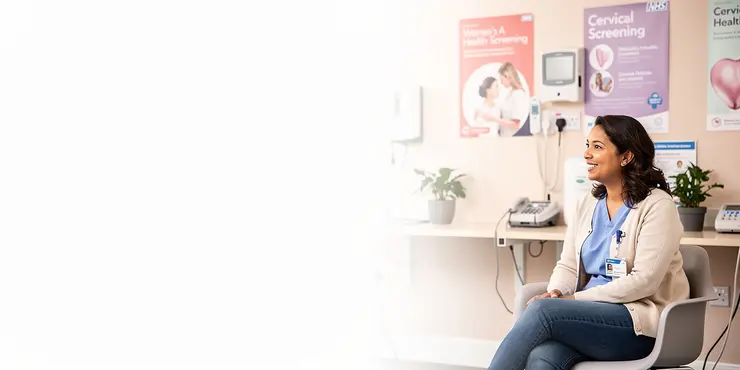
The NHS is #StillHereToHelp with cervical screening
Relevance: 18%
-
Is screening painful or risky for my child?
Relevance: 18%
-
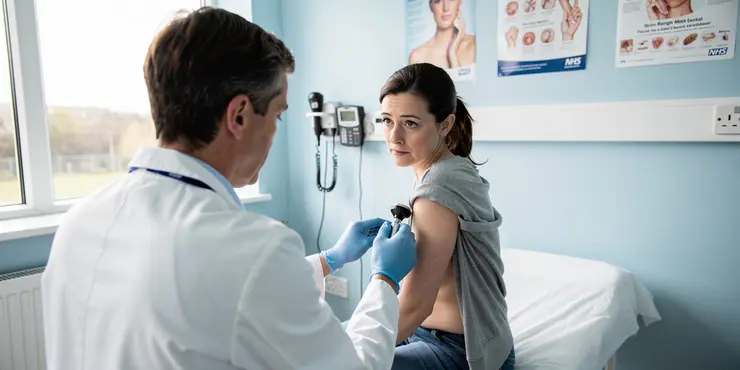
What is a skin cancer screening?
Relevance: 18%
-
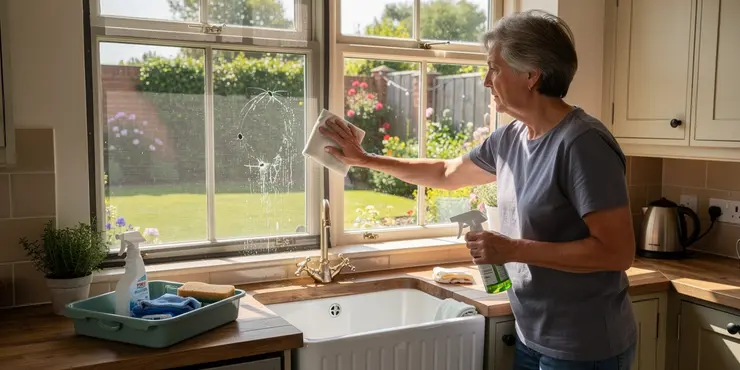
How do I maintain my mosquito screens?
Relevance: 18%
-

Can pets damage mosquito screens?
Relevance: 18%
-
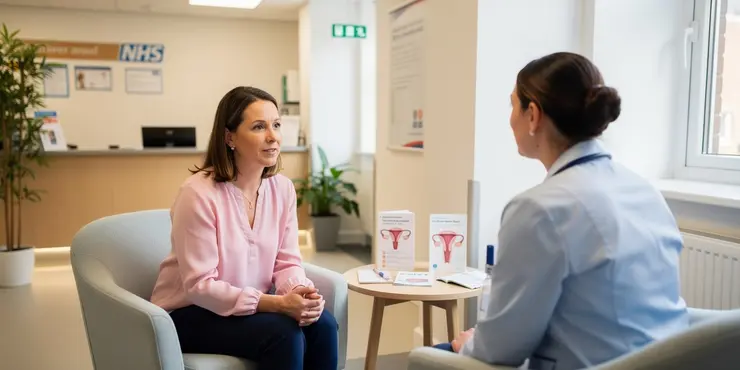
NHSGGC - Cervical Cancer Screening - English
Relevance: 18%
-
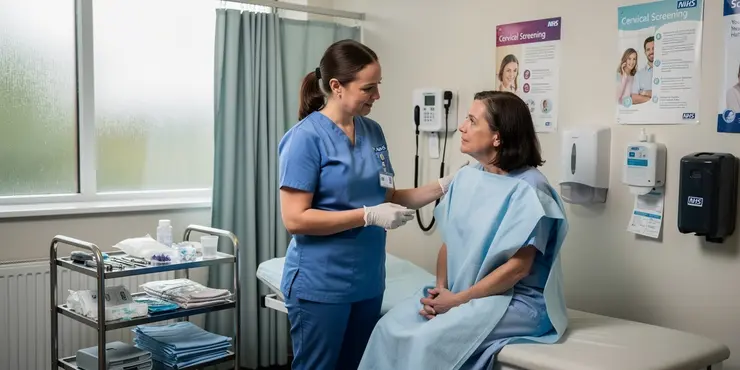
What is cervical screening (smear test)?
Relevance: 18%
-

Do mosquito screens add value to my home?
Relevance: 18%
-
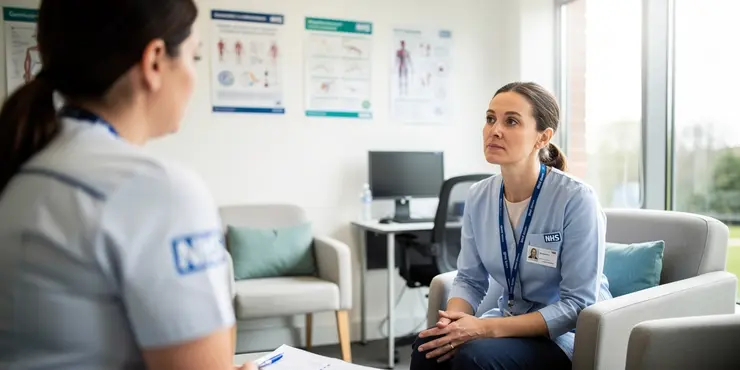
Is genetic screening available for cancer risk?
Relevance: 18%
-
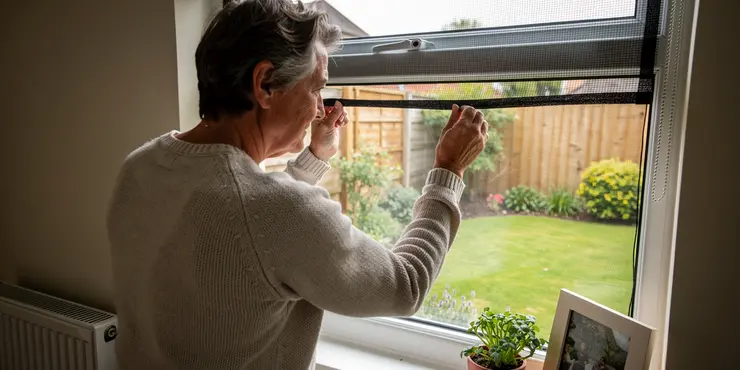
Are mosquito screens effective against midges?
Relevance: 18%
-
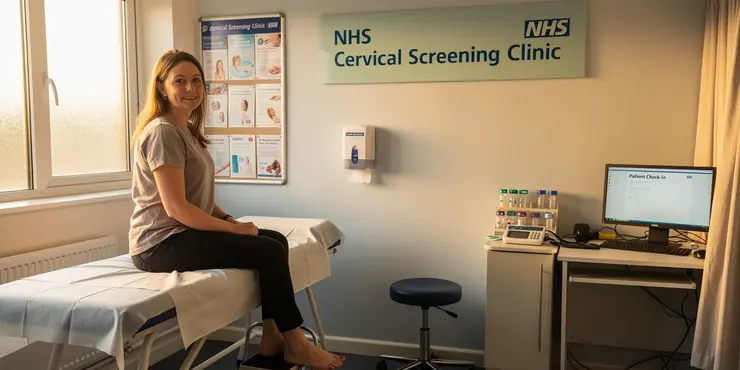
Cervical screening: what to expect | NHS
Relevance: 18%
-
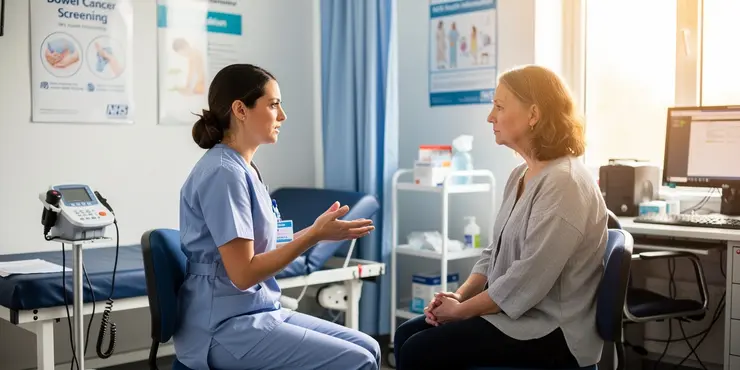
What kinds of cancer screening are available?
Relevance: 18%
-
What are the limitations of type 1 diabetes screening?
Relevance: 18%
-
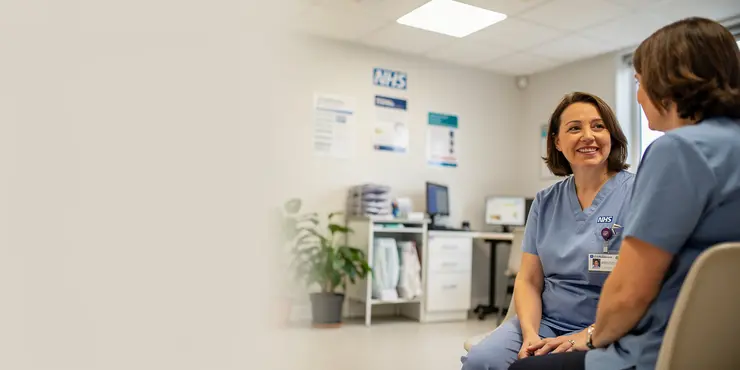
Do mosquito screens provide insulation benefits?
Relevance: 18%
Eddie's Story - Abdominal Aortic Aneurysm (AAA) Screening
Introduction to AAA
An Abdominal Aortic Aneurysm (AAA) is a swelling or ballooning in the abdominal part of the aorta, the largest artery in the body. If untreated, it can lead to life-threatening complications, such as aortic rupture. This condition is especially common among men aged 65 and older, making regular screening essential.
Eddie's Experience
Eddie, a 67-year-old retired engineer in the United Kingdom, volunteered for an AAA screening after receiving an invitation letter from the NHS. Like many men his age, Eddie was unaware of his risk for this condition. Taking the screening saved his life. “I had no symptoms,” Eddie said, “but the scan showed that I had a large aneurysm that needed immediate attention.”
The Screening Process
The AAA screening Eddie underwent was simple, quick, and non-invasive. It involved an ultrasound scan of his abdomen, which took about 10-15 minutes. The technician applied a gel to his stomach area and used a small device to visualize his aorta on a screen. Eddie received his results immediately.
Importance of Early Detection
Detecting AAA early can significantly reduce the risk of aortic rupture. For Eddie, the screening led to a life-saving surgery where his aneurysm was repaired with a graft. According to the NHS, men over 65 are automatically invited for screening, offering early diagnosis and timely intervention.
National Health Service (NHS) Role
The NHS AAA Screening Programme is a vital service aimed at men aged 65 and over. Men eligible for the programme receive an invitation by post. Those over 65 who haven’t been screened can self-refer. This initiative highlights the importance of preventive measures and early detection in improving health outcomes.
Conclusion
Eddie’s story underscores the significance of AAA screening in saving lives. Regular screening can identify aneurysms at an early stage, leading to prompt treatment before complications arise. It is an invaluable service provided by the NHS, targeted at preserving the health and well-being of older men in the UK.
Eddie's Story - Abdominal Aortic Aneurysm (AAA) Screening
What is AAA?
AAA stands for Abdominal Aortic Aneurysm. It means there is a bump or bulge in a big blood tube in your tummy. If not treated, it can be very dangerous. AAA happens more in men over 65. That's why checking for it is very important.
Eddie Gets Checked
Eddie is 67 years old and used to work as an engineer. He lives in the UK. Eddie got a letter from the NHS asking him to get checked for AAA. He didn't know he could have it because he felt fine. But the check-up saved his life. Eddie said, “I felt fine, but the check said my artery was big and needed fixing right away.”
How They Check for AAA
The AAA check that Eddie did was easy and fast. It wasn't painful at all. They used a scanner to check his tummy. It only took 10 to 15 minutes. The person helping Eddie put some gel on his tummy and used a small tool to look inside on a screen. Eddie got his results right away.
Why Early Checks Matter
Finding AAA early helps prevent it from bursting. Eddie had a surgery that fixed his artery, and it saved his life. The NHS invites men over 65 to get checked, so they can help them early on.
What the NHS Does
The NHS has a program to check men over 65 for AAA. They send letters to invite them. Men over 65 who haven't been checked can ask for the check themselves. This program helps catch problems early and keeps people healthy.
Why Eddie's Story Matters
Eddie’s story shows that getting checked for AAA can save lives. Regular checks can find problems early, so they can be fixed before they get worse. This service by the NHS helps keep older men in the UK safe and healthy.
Frequently Asked Questions
What is an abdominal aortic aneurysm (AAA)?
An abdominal aortic aneurysm (AAA) is a swelling of the aorta, the main blood vessel that runs from the heart down through the abdomen.
Why is AAA screening important?
AAA screening is important because it helps detect aneurysms early, allowing for monitoring or treatment before they rupture, which can be life-threatening.
Who is eligible for AAA screening in the UK?
In the UK, AAA screening is offered to men aged 65 and over. Men who are registered with a GP will receive an invitation during the year they turn 65.
How is an AAA screening performed?
AAA screening is performed using a simple ultrasound scan that takes around 10-15 minutes and is painless. It involves placing a small scanner on the abdomen to get a clear image of the aorta.
What does a normal screening result look like?
A normal screening result shows that the diameter of the aorta is less than 3 cm. Men with a normal result do not need another scan.
What happens if an aneurysm is detected?
If an aneurysm is detected, the size of the aneurysm will determine the next steps. Small aneurysms (3-4.4 cm) require yearly monitoring, while larger ones (4.5-5.4 cm) need monitoring every three months. Large aneurysms (5.5 cm or more) may require further tests and surgical intervention.
How common are AAAs?
AAAs are more common in men and the risk increases with age. Approximately 1 in 70 men aged 65 will have an AAA that requires monitoring or treatment.
What are the risk factors for developing an AAA?
Risk factors for developing an AAA include smoking, high blood pressure, high cholesterol, and a family history of AAA. Men are also at higher risk than women.
Is AAA screening available for women?
Routine AAA screening is not offered to women because they are at much lower risk. However, women at higher risk, such as those with a family history of AAA, should speak to their GP for further advice.
What are the symptoms of an AAA?
Smaller AAAs typically do not cause any symptoms. However, larger aneurysms can cause symptoms such as a pulsating feeling in the abdomen, back pain, or abdominal pain.
Can AAA be prevented?
While you can't prevent an AAA, you can reduce your risk by not smoking, maintaining a healthy blood pressure, keeping your cholesterol levels in check, and leading a healthy lifestyle.
What are the treatment options for a large AAA?
Treatment options for a large AAA may include surgery to repair or replace the affected section of the aorta. This can be done through open surgery or an endovascular procedure, depending on the patient's condition.
Is the AAA screening service free?
Yes, the AAA screening service in the UK is provided free of charge by the NHS for eligible men.
How will I be informed of my screening result?
You will receive your screening result immediately after the ultrasound scan, and it will also be sent to your GP.
What should I do if I miss my screening appointment?
If you miss your screening appointment, you should contact your local AAA screening programme to arrange another appointment.
What is an abdominal aortic aneurysm (AAA)?
An abdominal aortic aneurysm (AAA) is a big, weak spot in a blood tube in your tummy area. This blood tube is important because it carries blood from your heart to your lower body.
If this spot gets too big, it can be very serious. It's good to tell a doctor if you think you have it.
There are ways to check for it, like special doctor tests. Using a calendar or setting reminders on your phone can help you remember doctor appointments.
An abdominal aortic aneurysm, or AAA, is a bump or swelling in a big blood tube called the aorta. The aorta is a main blood tube that goes from the heart down through the tummy.
Why is AAA screening important?
AAA screening checks for a big problem in your tummy called an aneurysm. It's like a big bubble in a blood tube. Screening helps find this problem early. That's important because it can be dangerous if the bubble bursts.
When doctors find the problem early, they can help fix it before it gets worse.
To make reading easier, use tools like read-aloud apps or ask someone to explain it to you.
AAA screening is a health check. It finds problems called aneurysms early. This is important because doctors can watch or fix these problems before they cause harm. Fixing them early can stop them from being very dangerous.
If reading is hard, try using audiobooks or apps that read text out loud. These can help you understand the information better.
Who can have AAA screening in the UK?
AAA screening is for men aged 65 and older. AAA stands for Abdominal Aortic Aneurysm. It is a test to check for a swelling in the big blood vessel in the tummy.
If you are a man and you are 65 or older, you can have this screening. If you are younger than 65, or if you are a woman, you usually do not need this test.
If you think you need this test, you can talk to your doctor. They can give you more information on what to do next.
To help understand this information, you can:
- Ask someone you trust to read it with you.
- Use pictures to help explain the words.
- Write down any questions to ask your doctor later.
In the UK, men who are 65 years old or older can get a special test called AAA screening. If a man is 65 and has a doctor, he will get a letter asking him to take the test in the year he turns 65.
How do they check for AAA?
AAA screening is a test to look at the aorta in your belly. It uses an ultrasound scan. The scan is easy and does not hurt. It takes about 10 to 15 minutes. The doctor or nurse will put a small scanner on your belly to see a picture of the aorta.
What does a normal screening result look like?
A normal screening result means your health is good. The test did not find any problems.
Helpful tip: If you find reading hard, you can ask someone you trust to read it with you. Using a highlighter can also help you focus on important words.
If your test is normal, it means your aorta is smaller than 3 cm. Men with a normal test do not need another scan.
What happens if a doctor finds an aneurysm?
An aneurysm is a weak spot in a blood vessel. It can be dangerous if it breaks.
If a doctor finds an aneurysm, they will watch it carefully. They might do more tests to see how big it is.
Sometimes, doctors fix aneurysms with surgery. This helps stop it from breaking.
If you need to learn more, you can:
- Talk to your doctor.
- Use simple books or websites about aneurysms.
- Ask someone you trust to help explain.
If doctors find an aneurysm, they check how big it is. This helps them decide what to do next. Small aneurysms (3-4.4 cm) need a check-up once a year. Bigger ones (4.5-5.4 cm) need a check-up every three months. Really big aneurysms (5.5 cm or more) might need more tests and surgery.
How often do AAAs happen?
AAAs happen more often in men. The chance of getting one goes up as you get older. About 1 in 70 men who are 65 years old will have an AAA that needs to be watched or treated.
What can make it more likely to get an AAA?
There are things that make it more likely to get an AAA. AAA stands for abdominal aortic aneurysm. Here are some things to watch out for:
- Smoking: Smoking is bad for your health and can make it more likely to get an AAA.
- High blood pressure: This means the blood pushes too hard against the walls of your blood vessels.
- High cholesterol: This is a type of fat in your blood that can cause problems.
- Family history: If someone in your family has had an AAA, you might be more likely to get one too.
- Being a man: Men have a higher chance of getting an AAA than women.
Ask for help from a doctor if you think you're at risk. You can also use tools to help read, like audiobooks or text-to-speech apps that read things out loud for you.
Can women get AAA screening?
AAA screening checks if there is a big swelling in the large blood tube (aorta) in the belly. This is called an AAA.
AAA screening is mainly for men over 65 years.
Women do not usually get AAA screening.
What can women do?
- Talk to your doctor if you are worried.
- Ask if you need any tests.
- Keep healthy by exercising and eating good food.
Women don't usually get a test called an AAA screening because they aren't likely to have an AAA. But if a woman has family members who have had AAA, she might be at higher risk. These women should talk to their doctor for more help.
What signs show there might be an AAA?
Small AAAs usually do not make you feel bad. But big ones can make you feel a heartbeat in your tummy, a sore back, or pain in your belly.
Can we stop AAA from happening?
You can't stop an AAA from happening, but you can make it less likely. Don't smoke. Keep your blood pressure healthy. Keep your cholesterol at a good level. Live a healthy life.
How can doctors help if you have a big AAA?
An AAA is a problem with a big blood tube in the body. There are ways doctors can help:
- Doctors can watch it with special pictures to see if it gets bigger.
- Doctors might do an operation to fix it.
- Sometimes, doctors put a stent in to make it stronger.
If you or someone you know has a big AAA, talk to a doctor about what to do. Using pictures and stories can help to understand better.
If someone has a big AAA, they might need surgery. The doctor can fix or change the part of the aorta that is not working well. There are two ways to do this: open surgery or an endovascular procedure. The doctor will choose the best way based on how the patient is feeling.
Do you have to pay for the AAA screening service?
Yes, the AAA screening service in the UK is free. The NHS gives this test at no cost for men who can have it.
How will I find out about my test result?
After your test, you will get the result. Here is how:
- You might get a letter in the mail.
- Sometimes, you may get a phone call.
- You could also get a text message.
If you do not understand your result, here are some helpful tips:
- Ask a family member or friend to help you read it.
- Use text-to-speech tools that can read the words to you.
- Call the doctor's office if you have questions.
You will get your test result right after the ultrasound scan. Your doctor will also get the result.
What can I do if I miss my health check appointment?
Don't worry if you miss your health check. Here are some simple steps you can take:
- Call the place where you had the appointment. Tell them you missed it.
- Ask to make a new appointment. Pick a day and time that works for you.
- Write down the new date and time, so you don’t forget it again.
If you need help, ask a friend, family member, or carer to help you call or write down the details.
If you miss your check-up, call your local AAA screening program. Ask them to set up a new appointment for you.
Useful Links
This website offers general information and is not a substitute for professional advice.
Always seek guidance from qualified professionals.
If you have any medical concerns or need urgent help, contact a healthcare professional or emergency services immediately.
Some of this content was generated with AI assistance. We’ve done our best to keep it accurate, helpful, and human-friendly.
- Ergsy carfully checks the information in the videos we provide here.
- Videos shown by Youtube after a video has completed, have NOT been reviewed by ERGSY.
- To view, click the arrow in centre of video.
- Most of the videos you find here will have subtitles and/or closed captions available.
- You may need to turn these on, and choose your preferred language.
- Go to the video you'd like to watch.
- If closed captions (CC) are available, settings will be visible on the bottom right of the video player.
- To turn on Captions, click settings .
- To turn off Captions, click settings again.
More Items From Ergsy search
-

AAA (Abdominal aortic aneurysm) screening
Relevance: 100%
-

NHS Abdominal Aortic Aneurysm (AAA) Screening
Relevance: 96%
-

Abdominal Aortic Aneurysm (AAA) screening programme
Relevance: 94%
-

Eddie's Story - Abdominal Aortic Aneurysm (AAA) Screening
Relevance: 94%
-

Your abdominal aortic aneurysm (AAA) screening appointment
Relevance: 91%
-

Survivor of an Abdominal Aortic Aneurysm rupture appeals for men to take up NHS Screening Programme.
Relevance: 84%
-

Repairing complex aortic aneurysm
Relevance: 72%
-

Health Screenings You Should Know About
Relevance: 30%
-

What is it like having a Transcutaneous Aortic Valve Implant (TAVI)?
Relevance: 27%
-

Stomach ache and abdominal pain
Relevance: 26%
-

Can I do abdominal exercises during pregnancy?
Relevance: 26%
-

Derbyshire Diabetic Eye Screening - Diabetic Eye Screening
Relevance: 20%
-

How is appendicitis different from other causes of abdominal pain?
Relevance: 20%
-

Derbyshire Diabetic Eye Screening - Your Screening Appointment
Relevance: 20%
-

Bowel cancer screening: Alan Titchmarsh and Tommy Walsh | NHS
Relevance: 19%
-

What is cancer screening?
Relevance: 19%
-

Cervical screening: Q&A | NHS
Relevance: 19%
-

Diabetes Eye Screening
Relevance: 19%
-

AI Breast Cancer Screening in the UK
Relevance: 19%
-

The asylum screening interview
Relevance: 19%
-

What are the recommendations for colorectal cancer screening?
Relevance: 19%
-

NHS breast cancer screening
Relevance: 18%
-

Are there eco-friendly mosquito screen options?
Relevance: 18%
-

Are mosquito window screens effective in the UK?
Relevance: 18%
-

Are Mosquito window screens effective?
Relevance: 18%
-

Are there retractable mosquito screens available?
Relevance: 18%
-

The NHS is #StillHereToHelp with cervical screening
Relevance: 18%
-
Is screening painful or risky for my child?
Relevance: 18%
-

What is a skin cancer screening?
Relevance: 18%
-

How do I maintain my mosquito screens?
Relevance: 18%
-

Can pets damage mosquito screens?
Relevance: 18%
-

NHSGGC - Cervical Cancer Screening - English
Relevance: 18%
-

What is cervical screening (smear test)?
Relevance: 18%
-

Do mosquito screens add value to my home?
Relevance: 18%
-

Is genetic screening available for cancer risk?
Relevance: 18%
-

Are mosquito screens effective against midges?
Relevance: 18%
-

Cervical screening: what to expect | NHS
Relevance: 18%
-

What kinds of cancer screening are available?
Relevance: 18%
-
What are the limitations of type 1 diabetes screening?
Relevance: 18%
-

Do mosquito screens provide insulation benefits?
Relevance: 18%


